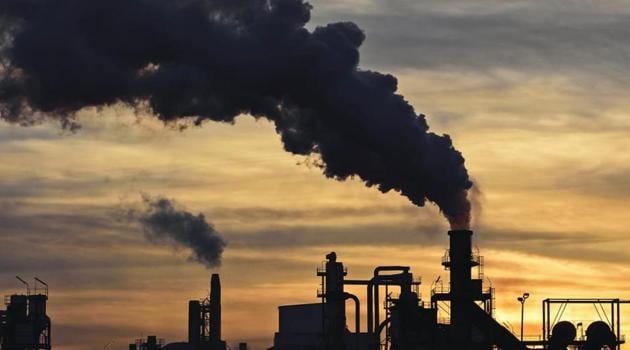Budget 2020: Rs 4,400 crore for cleaning air
Apart from the financial boost to large cities implementing the National Clean Air Programme (NCAP), Union finance minister Nirmala Sitharaman said state utilities will be advised to close down old thermal power plants that do not meet the emission standards.
The Union government has allocated Rs 4,400 crore to deal with air pollution in cities with a million-plus population, up from Rs 460 crore last year. Apart from the financial boost to large cities implementing the National Clean Air Programme (NCAP), Union finance minister Nirmala Sitharaman said state utilities will be advised to close down old thermal power plants that do not meet the emission standards.

“There are yet thermal power plants that are old and their carbon emission levels are high. For such power plants, we propose that utilities running them would be advised to close them if their emission is above the preset norms. The land so vacated can be put to alternative use,” she said in her budget speech.
Experts say closing old thermal power plants will be a big step forward in curbing air pollution and meeting India’s nationally determined contribution under the 2015 Paris Agreement, which aims to limit a rise in average world temperatures to below 2 degrees Celsius above pre-industrial levels. Eleven of 29 thermal power plants identified for closure have been shut down.
“More than 30 GW coal-based electricity generation capacity operational in India is older than 25 years. These older power plants are a big threat not just to the environment and public health but also to the economy. Shutting down the older coal-based plants and replacing those with renewable energy is the only way forward for India. Good to see this emphasis by the finance minister in the budget speech today, even though it was mentioned as an advisory, but it shows the government direction and is a positive move,” said Centre for Research on Energy and Clean Air analyst Sunil Dahiya.
Sitharaman said the million-plus cities attempting to improve air quality may receive monetary incentives from the Centre. “The parameters for the incentives would be notified...”
HT reported on January 12 that a year since its launch on January 10 last year, only about Rs 172 crore have been disbursed under the NCAP to 102 cities that did not meet the annual PM10 (coarse, pollution particles) national standard from 2011 to 2015. Of the 102 cities, 28 had recorded PM10 concentration of more than 90 micrograms per cubic metres from 2011 to 2015.
Air pollution experts said a budget of under Rs 500 crore to deal with a public health crisis like air pollution is grossly inadequate. In this year’s budget, the Rs 4,400 crore is a commitment made by the finance minister but does not reflect allocations made for programmes under the environment ministry.
“This jump in financial commitment for clean air action in million-plus cities is welcome. But it is not clear how this will be disbursed for multi-sector action for verifiable mitigation and to meet NCAP target. The environment ministry is expected to design schemes and incentives to leverage this fund. But this proposed budget of Rs 400,000 core for clean air action in cities is not showing up in the allocated budget for the environment ministry, which is about Rs 3,100 core. We need more details on this. But this spending must ensure a verifiable reduction in pollution in targeted regions,” said Centre for Science and Environment (CSE) executive director Anumita Roychowdhury.
The NCAP aims to reduce the concentration of PM2.5 (fine, respirable pollution particles) and PM10 in 102 cities by 20% to 30% by 2024 over the 2017 annual average levels.
It has been criticised for not having a legal mandate for implementation. The NCAP depends on a collaborative and participatory approach, which means it is not mandatory that cities meet the NCAP targets. It also does not have a regional focus and is largely a city-oriented plan.
In a piece in peer-reviewed journal Proceedings of the National Academy of Sciences of the United States of America in May 2019, air pollution scientists Joshua Apte and Pallavi Pant wrote the NCAP would be far more effective if it focused on a regional approach as against city-level plans.
Get Current Updates on India News, Ram Navami Live Updates , Lok Sabha Election 2024 live, Elections 2024, Election 2024 Date along with Latest News and Top Headlines from India and around the world.



